ANALYSIS: Trump’s Caucasus Peace Deal Is Bold — But America’s Next Steps Demand Caution
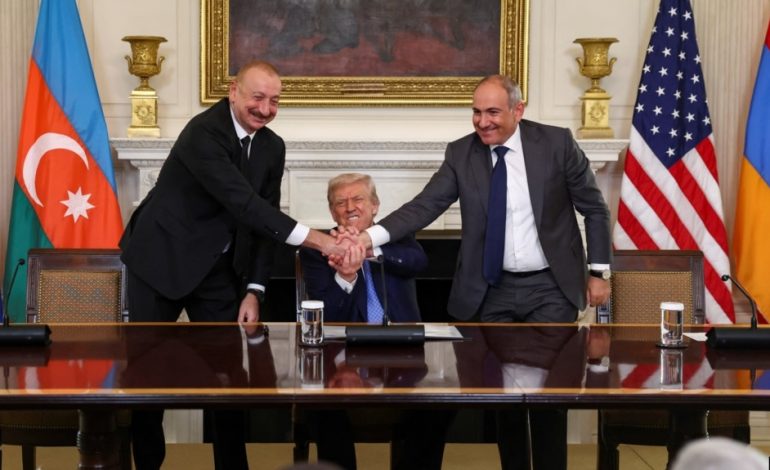
President Donald Trump isn’t waiting for history to applaud. He’s writing it himself.
In a rare and undeniably significant diplomatic breakthrough, Trump welcomed the leaders of Armenia and Azerbaijan to the White House on Friday to sign a peace deal — one aimed at finally ending over three decades of bloodshed between the two South Caucasus rivals. The image of Trump flanked by Armenian Prime Minister Nikol Pashinyan and Azerbaijani President Ilham Aliyev, all smiles and handshakes, was tailor-made for legacy-building.
And to be fair, the achievement is real.
Trump pulled off what others — including Russia, the EU, and multiple US administrations — could not: a signed commitment to peace, economic partnership, and open borders in one of the world’s most stubborn conflict zones.
For that, he deserves credit. And yes, perhaps even a fresh nomination for the Nobel Peace Prize he so clearly covets.
But with all of Trump’s signature flourish — the speeches, the branding (“The Trump Route for International Peace and Prosperity,” anyone?), and the promises of a new economic corridor — there’s another side to this story that needs a closer look.
Because what comes next isn’t just about peace. It’s about power projection, geopolitical recalibration, and a new American footprint in one of the most sensitive strategic chokepoints in the world.
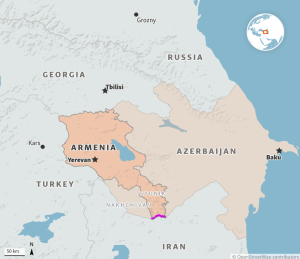
Let’s start with what’s in the deal:
- A permanent ceasefire between Armenia and Azerbaijan.
- Bilateral US agreements with both countries on investment, trade, technology, and security.
- The opening of a major transit corridor through Armenia — the so-called Trump Route — connecting Azerbaijan to its Nakhchivan exclave and onward to Turkey.
- American companies lined up to build out rail, pipelines, fiber optics, and more.
It’s an ambitious, business-friendly peace — classic Trump. One senior official even called it a “win for the West, a loss for Russia, China, and Iran.”
He’s not wrong.
Russia, traditionally the dominant outside power in the Caucasus, is now on the sidelines. Iran, which shares a sensitive border with Armenia, is raising alarm bells. And with Moscow’s influence waning post-Ukraine, the US is stepping in to fill the vacuum — with boots, money, and policy.
But that’s where the celebration should pause.
The South Caucasus is a powder keg wrapped in a puzzle. And while Trump’s peace push has quieted one front, it’s potentially opening up another — not just between Armenia and Azerbaijan, but between Washington and the region’s other powerful neighbors.
By establishing US management of the new corridor — via a long-term lease and subleased infrastructure rights — America is no longer just brokering peace. It’s staking a physical claim in a region that borders Iran, Russia, and Turkey.
That’s a tectonic shift in US foreign policy.
And with Trump also lifting restrictions on military cooperation with Azerbaijan — in the wake of a 2023 offensive that led to mass displacement of ethnic Armenians — the US risks appearing to endorse, or at least reward, hardline tactics.
To Armenians, especially those still displaced or grieving, that’s a bitter pill. Some see the deal as peace at gunpoint. Others view it as a trade-off: regional calm in exchange for painful concessions.
There’s no doubt this agreement creates a rare window of opportunity for economic development, regional integration, and reduced Russian dominance. Armenia stands to gain access to broader markets and investment, while Azerbaijan strengthens its trade links and geopolitical clout.
But US policymakers should tread carefully.
Becoming a landlord in the Caucasus is not the same as brokering a deal from afar. The Trump Route may connect continents, but it also puts America squarely in the middle of centuries-old grievances, unresolved territorial questions, and intense cross-border scrutiny.
And let’s not forget: Trump is preparing for a summit with Vladimir Putin next week to discuss a ceasefire in Ukraine — one that could involve “swapping of territories.” The echoes of realpolitik are loud, and in places like the Caucasus, territorial deals can feel like déjà vu with a new suit.
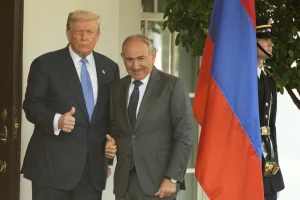
Trump calls himself “The Peace President.” In fairness, he’s building a case for it — from his previous Abraham Accords to his current forays into Ukraine peace talks and now the Caucasus.
But there’s a difference between being a peacemaker and being a regional stakeholder.
The line between mediation and expansion is thin — and once the US has a literal route running through one of the world’s most complex geopolitical crossroads, the stakes change.
All eyes will be on how the US balances economic ambition with regional responsibility. A misstep — or the perception of favoritism — could spark new tensions or invite pushback from already skeptical neighbors like Iran or an emboldened Russia looking to reassert its influence.
Trump deserves praise for securing an agreement that brings hope to two nations worn down by decades of conflict. It’s a significant achievement and, in some ways, a personal triumph.
But let’s not mistake a signed treaty for a stable peace.
The Trump Route may be paved with opportunity — but it’s also laid across land scarred by war, suspicion, and centuries of rivalry. Whether this becomes a highway to prosperity or a geopolitical fault line will depend not just on Trump’s instincts, but on what America chooses to build next.
Peacemaking is hard. Peaceminding might be even harder.
With input from the Hill, Al Jazeera, and EuroNews, NBC News, the Associated Press, Radio Free Europe, and the Times of Israel.
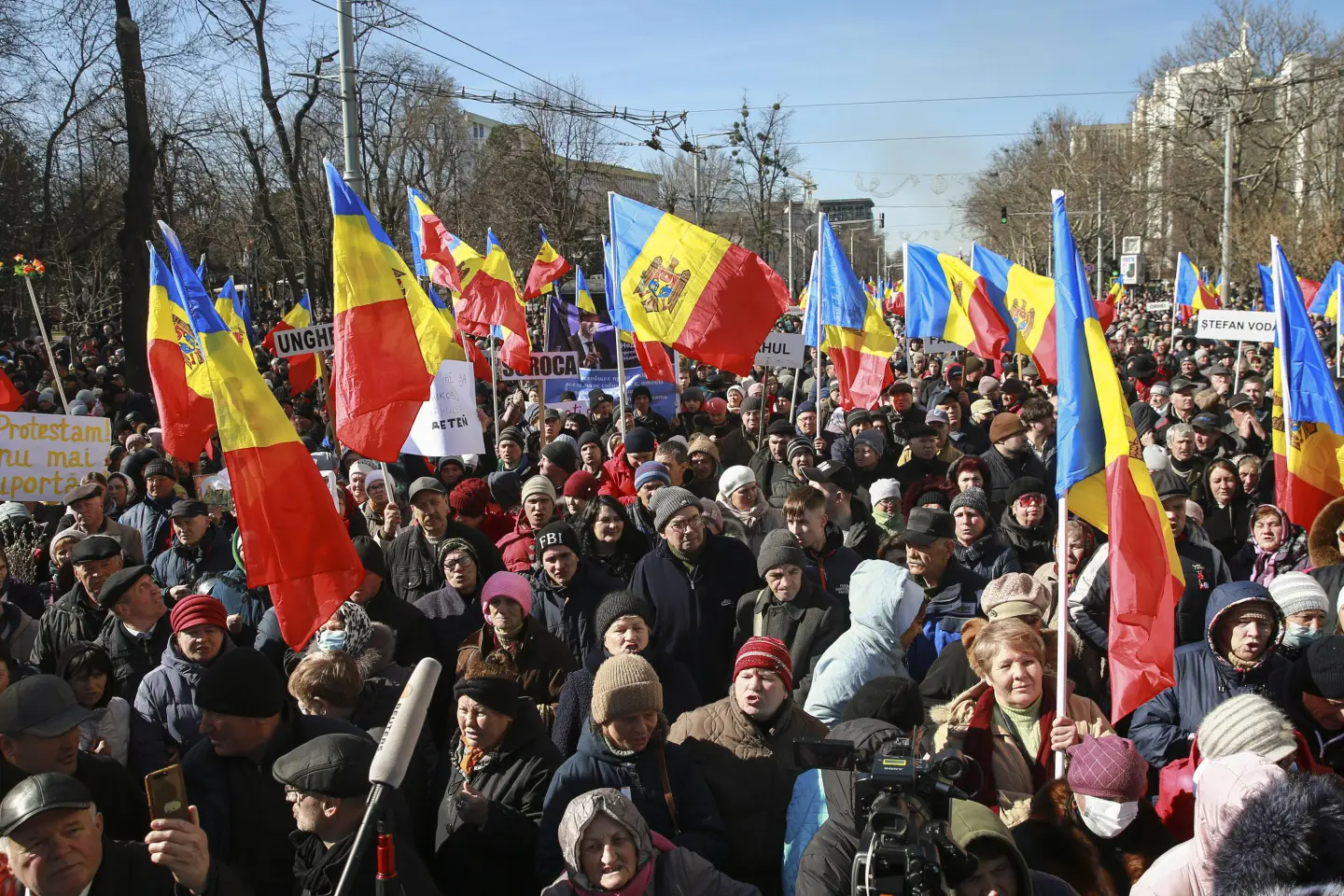
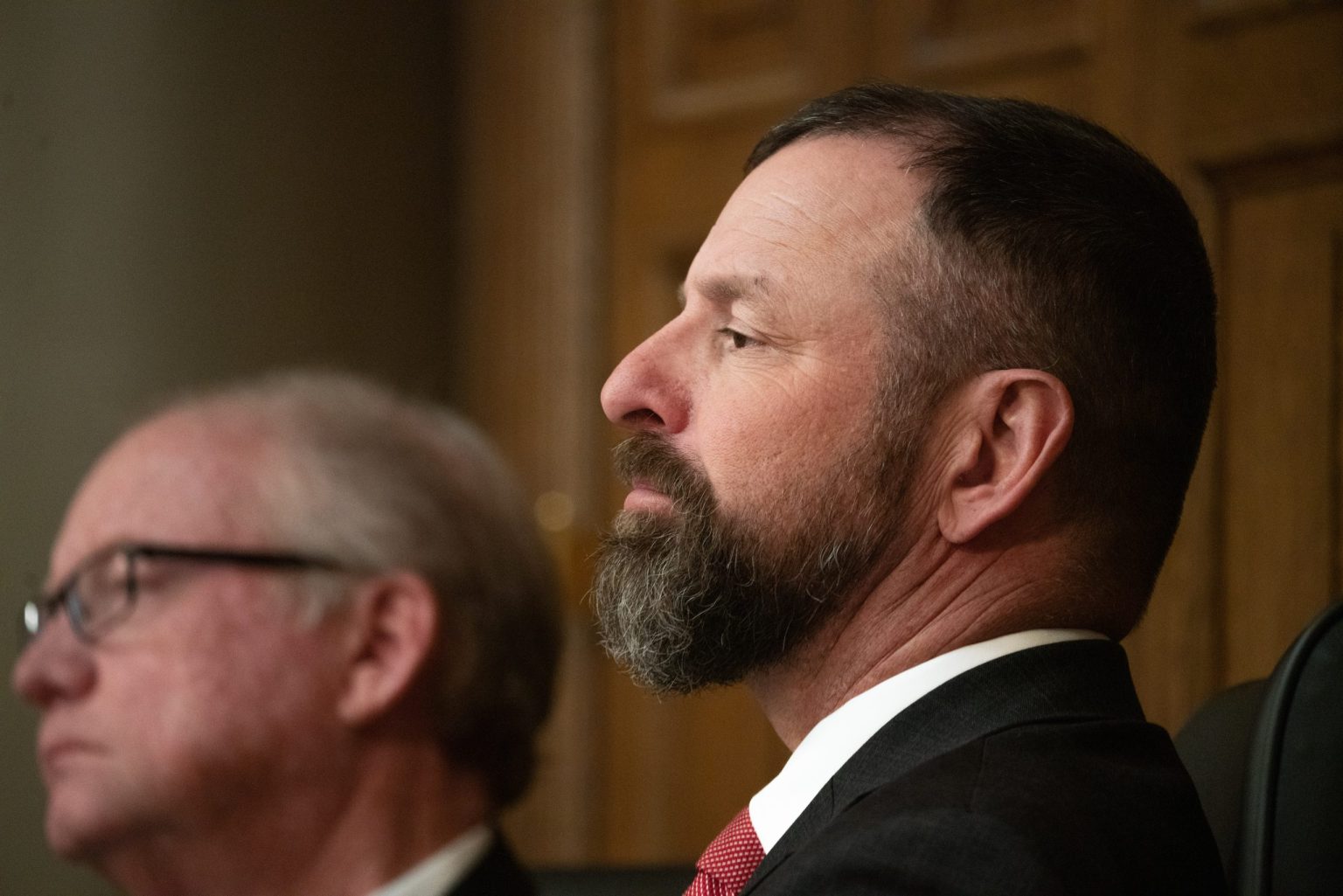







The latest news in your social feeds
Subscribe to our social media platforms to stay tuned